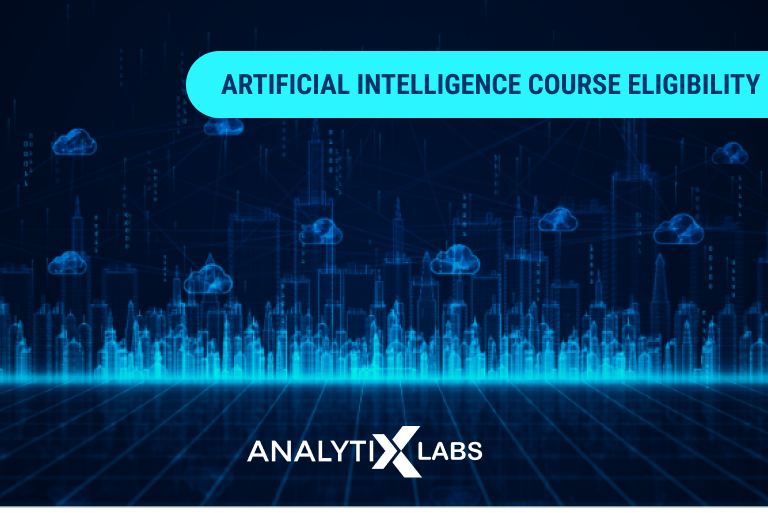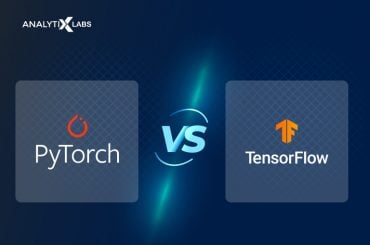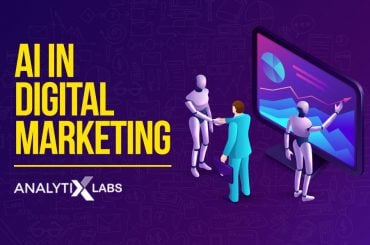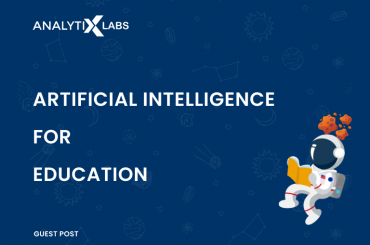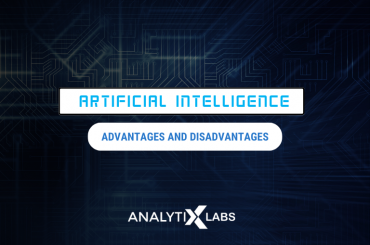The artificial Intelligence domain is ever-evolving, with a gamut of opportunities to tap into. Since AI has opened up endless possibilities in terms of application in daily life, it is essential to know the exact eligibility for artificial intelligence courses in India. After all, building a career in AI couldn’t be more lucrative than now.
A majority of modern-day industries are using AI to enhance their products and services. This has led to a rise in demand for AI experts to help these companies leverage AI’s potential to its maximum. This article will cover the core eligibility for artificial intelligence courses, different courses to choose from, the scope of AI in India, and industries that are gaining maximum benefits from AI.
Let’s start.
Eligibility for Artificial Intelligence Course: Overview
When discussing artificial intelligence eligibility for courses, you can pursue an artificial intelligence course after completing your schooling (after 10+2).
Suppose you want to be eligible for graduation or a Master’s in AI from a university in India. In that case, the score to qualify is 70%, with at least 60 % marks in Physics, Science, and Arithmetic.
Students must meet the above requirements to start with. Additionally, you might also appear for the National JEE entrance test or other tests such as SUAT, UPSEE, etc.
Remember that the term ‘Artificial Intelligence’ and ‘Machine Learning course’ varies at various levels.
The undergraduate degree is four years, while the post-graduate is two years. Apart from this traditional way of gaining knowledge, multiple certification platforms exist, each with its eligibility criteria.
These programs comprise various courses that, in totality, help the learner understand
- Functioning of various AI-based algorithms
- Take care of issues identified with robots and machines
- Create AI applications and do the necessary programming
- Advance the capabilities of robots
Having said that, let’s look into the core concepts of AI and go over the learning path.
What is AI?
Artificial Intelligence (AI) makes it workable for machines to learn new facts, acclimate to new sources of information, and perform human-like errands.
Most AI models – from chess-playing computers to self-driving vehicles – depend intensely on deep learning algorithms and, in some cases, natural language processing. Utilizing these advances, computers can be prepared to perform complex tasks by making them handle a lot of information and recognizing patterns in the data.
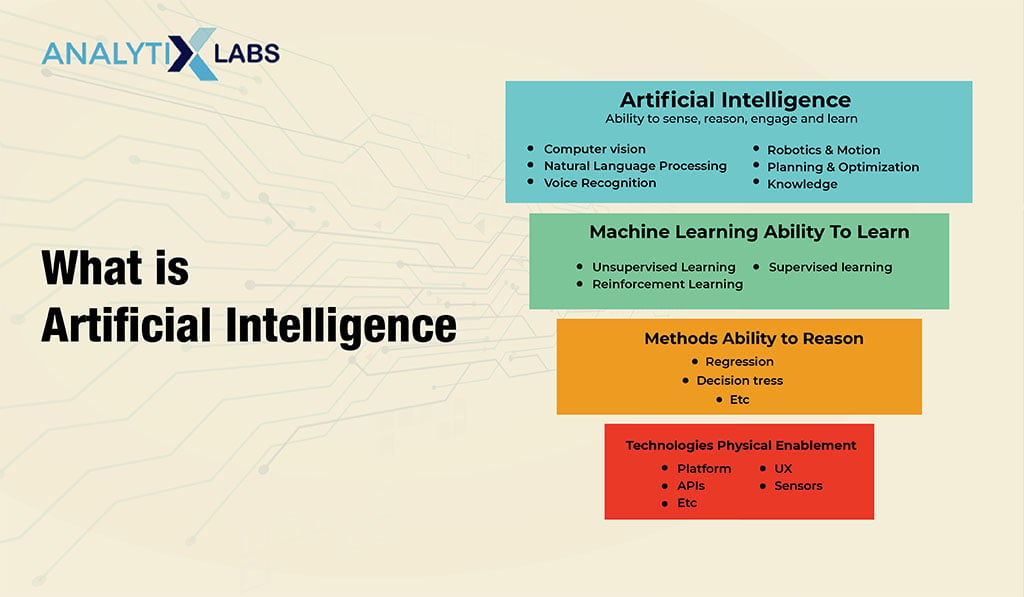
Also read:
Importance of artificial intelligence
The volume of information produced by people and machines far outperforms people’s capacity to assimilate, decipher, and identify patterns to settle on complex choices and decision-making. This is where AI comes in handy, as it can find patterns and predict values for us by looking at large quantities of structured, semi-structured, and even unstructured data.
Example of how AI works:
One can figure out a way to not lose at tic-tac-toe (noughts and crosses), even though there are 255,168 interesting maneuvers, of which 46,080 end in a draw. However, only a few people would be viewed as excellent masters of checkers, with more than 500 x 1018, or 500 quintillions, diverse likely moves. This is where a highly trained human brain is useful.
However, with AI, it can figure out all the possible techniques and use the best one to win the game. This idea is then extrapolated to solve other complex problems ranging from image recognition to driving cars for humans.
Growth of AI in India
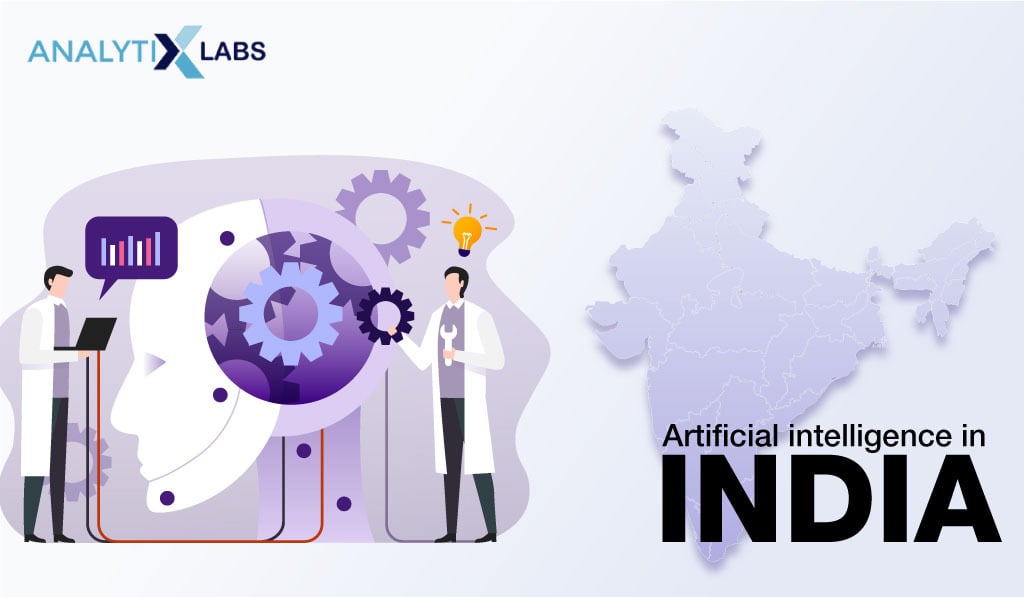
In June 2018, the Indian government characterized a public approach to artificial intelligence in a paper named “National Strategy for Artificial Intelligence“.
The NITI Aayog paper distinguishes five center regions where artificial intelligence advancement could empower the development and incorporation of AI in numerous industries such as medical services, farming, metropolitan/brilliant city planning, and transportation and portability.
The paper additionally talks about five obstructions to be tended to:
- Absence of AI exploration skills
- Absence of empowering biological information systems
- High asset cost and low awareness of AI
More than 4,000 AI patents were recorded during the period, multiple times higher than the figure for 2011-2015, uncovers a Nasscom study. India was positioned eighth in the best 10 nations by artificial intelligence patent families worldwide, a remarkable achievement considering it had no artificial intelligence-related patent documentation before 2002.
Reports suggest the estimated expenditure in AI will touch $11.78 billion by 2025 in India. As a result, this will add an estimated $1 trillion to India’s economy by 2035 [World Economic Forum]
AI is growing in full swing, and India is embracing evolution like a pro. With more applications of AI, the need for AI and ML experts will continue to be on the rise.
Artificial Intelligence Course Eligibility: Criteria
The eligibility for artificial intelligence courses in India is most prominent in any B.Tech course. You can additionally dive further into the complexities of AI and decide on the M.Tech course as well after going through the AI course details.
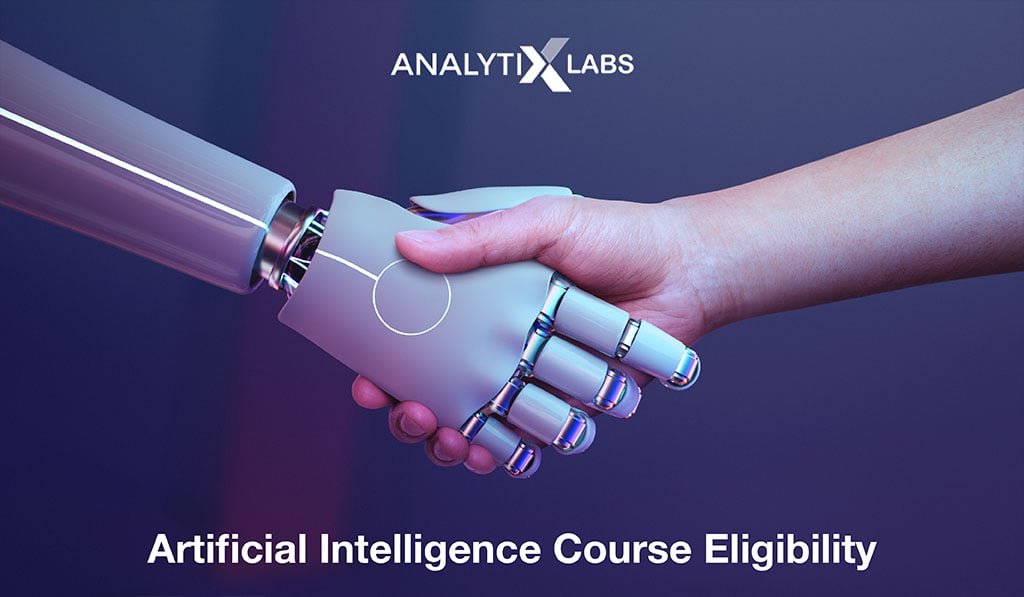
-
Undergraduate – 4 years
For the B.Tech artificial intelligence course eligibility, you must be a class 12 pass-out. Most of these courses are thorough artificial intelligence courses.
The AI course details of a B.Tech include the fundamentals of artificial intelligence and Machine Learning (ML) and their typical applications.
The Artificial intelligence course eligibility criteria in 2023 are similar to other ordinary software engineering courses, which require individuals to have their 12th done in the Science field and have high scores in STEM subjects.
For some courses, you may have to sit through the National JEE entrance test or other tests such as SUAT, UPSEE, etc. These AI courses also typically incorporate the topics that are there in the other ordinary software engineering courses, such as JAVA, C, electrical and hardware designing, database management, design, operating systems, etc.
-
Postgraduate – 2 years
Postgraduate Level Artificial intelligence course eligibility criteria in India is typically graduation in a STEM-based course. This includes Computer Science, Mathematics, Statistics, and, ofcourse, Data Science and Artificial Intelligence. The PG in AI offers a more extensive review of artificial intelligence and machine learning.
-
Professional certification courses
The course eligibility for professional courses is mostly relaxed. However, you must have a basic understanding of core subjects to learn AI. Most reputed online ed-tech institutes offer AI certificate courses, and as there is high competition among them, the quality of the courses has also seen a rise. Google, MIT, and Stanford University present a portion of these courses.
The minimum and maximum Duration of Artificial Intelligence Courses are as follows-
- In India, B. Tech in artificial intelligence is presented as a B.Tech Computer Science course. Like other B.Tech courses, this AI course is likewise 4 years in length, and there will be a sum of 8 semesters.
- M.Tech in software engineering specializing in artificial intelligence is a 2-year course with four semesters. A few colleges offer courses customized for AI and ML, and others provide discretionary AI subjects with the typical M.Tech educational plan. (Since B.Tech and M.Tech courses are normalized courses in India, there is no variety in the length of the B.Tech and M.Tech courses in any discipline. No organization can offer a B.Tech course under 4 years and an M.Tech under one year, at least not the popular or licensed ones.)
- Courses from EU-tech organizations can be highly varied. They can range from 1 month (if you have prior knowledge of ML) to 1 year (for nano degrees and diplomas). The Artificial Intelligence course by AnalytixLabs lasts 6 months, and candidates get one year to complete the course certification.
AnalytixLabs is a premium data science institute in India helmed by industry experts across multiple domains. You can start your AI learning with one of the two courses –
Opt for this Applied AI course if you want skills to build your own Machine Learning and neural network-powered applied AI applications! Over the last couple of years, the demand for Python professionals with AI and Machine Learning skills has been highest among Analytics recruiters.
Theoretical concepts of Artificial Intelligence are not sufficient to use it for practical applications, and that is where Applied AI comes into the picture. Through this course, you will learn various aspects of Data Science, Machine, and Deep Learning, which you need to apply, both conceptually and practically, to meet tangible business objectives.
A complete industry-relevant Big Data Science training and a great blend of Advanced Analytics and Big Data Engineering make it quite apt for aspirants who want to develop Machine Learning and Big Data skills and have a head-start in Big Data Science.
In this program, you begin by learning Python for Data Science, including descriptive and statistical predictive modeling. The next module is focused on supervised and unsupervised machine learning.
The last course in this learning track is focussed on Big Data Engineering and Analytics skills, with the latest and wisely used components of the Hadoop ecosystem, No-SQL, and cloud computing.
Types of AI Courses
AI courses can be broadly classified into two categories.
- Content-based AI courses
- Certificate-based AI courses
Content-based AI courses
We are seeing the application of artificial intelligence across industries (medical care, finance, mobile, automobile, smart home gadgets, music and film suggestions, administration, retail, security surveillance, fraud detection, virtual player games, and web-based media applications).
Pretty much every business is attempting to carry out AI in its processes. Learning AI can consequently open a universe of chances for anybody. As AI has diverse application possibilities, the various available courses can be distinguished based on their contents.
Broadly, they can be classified as follows.
-
Programming-based courses
Python is where you need to begin if you’re new to Artificial Intelligence. Through this course, you’ll become familiar with all the skills essential to acquiring a strong foundation in programming, math, and deep learning.
- Also read: Best Python Libraries for ML and AI
This will empower you to master practically any aspect of AI. The focal point of these courses is Python — one of the most generally utilized programming languages in AI. Such programs mainly focus on crucial library bundles for AI in Python, such as Pytorch (the most helpful open-source AI library for Python) and TensorFlow.
Neural networks are additionally integral to the educational program. They are the principal building blocks of current AI frameworks. In such a program, you’ll get familiar with the numerical abilities essential to see how to plan and build these networks. You’ll additionally figure out the potential of a neural network.
- Also read: Activation Function in Neural Networks
The particular focus is on deep neural networks, which are the main impetus behind most present-day AI frameworks. Before finishing such a program, you’ll typically have the option to assemble your own AI application — an image classifier or something similar by utilizing a deep neural network that you would have prepared without help from anyone else.
Most of these programming-based courses go over 5 core sections:
| Prologue to Python | This is the place where you learn Python. You’ll find the capabilities of Python, why it is used for AI, and the use of Python fundamentals. |
| Coding tools | Here, you’ll figure out how to utilize Jupyter Notebooks to make reports consolidating code, text, images, and others.
You’ll be acquainted with Python library bundles, for example, Anaconda (an environment manager built specifically for data) and other libraries such as Numpy (to add support for big data), Pandas (utilized for data control and analysis), and Matplotlib (which is utilized for data visualization), etc. |
| Linear algebra essentials | Such courses also briefly venture into Linear Algebra, as it’s a particularly significant mathematical concept in AI.
You’ll understand various concepts and their implementation in Python, such as vectors, matrices, linear combinations, and linear transformations. |
| Calculus essentials | Here, you will become familiar with calculus basics, which will assist you with various aspects of neural network-based algorithms such as backpropagation, gradient descent, etc.
The main focus here is on plotting, derivatives, understanding partial derivatives, chain rules, etc. Through this, you will be able to study the universe of neural networks and how exactly these concepts are used to make neural networks functional. |
| Neural networks | Last but not least, one will gain knowledge of the various neural network-based algorithms, their characteristics, use cases, types, advantages, and disadvantages.
You’ll also explore the preparation procedures required for developing a machine learning and neural network-based model and utilizing PyTorch and Tensorflow to develop different predictive models powered by the various deep learning algorithms. |
-
Future AI-based courses
Lately, Deep neural networks have been used to identify images just as we people do. However, this was a dream for many scientists working on AI technology some time back. Yet, today, with the abilities of AI, we can do several things that previously were thought to be impossible.
- Also read: Exploring DeepFakes
However, there are use cases where the application of AI is still developing. Here, those programs come in handy that talk about application areas that are still nascent. With such courses, you will be:
- Acquainted with the ideas and processes expected to turn into an AI expert.
- Trained to look further into deep learning and explore the new state-of-the-art or less explored neural network algorithms.
- Exploring advanced projects such as Computer Vision, Natural Language Processing, Self-Driving Cars, etc.
-
Application-based courses
Certain courses develop and train individuals to identify ways and avenues where AI can be applied in their domain. These courses are designed especially for non-specialized partners to take.
In these types of courses, you learn:
- The importance and understanding behind typical AI jargon, including neural networks, AI, deep learning, and data science
- What AI reasonably can and can’t do
- How to spot places for applying AI to resolve issues in your industry
- What are the pre-requisites for undertaking AI-based projects
- How to function with an AI team and construct an AI methodology in your organization
- How to explore moral and cultural conversations encompassing AI
However, these courses are, to a great extent, non-specialized and mainly helps an individual in gaining proficiency with the business and managerial aspect of AI.
-
Courses based on engineering, statistical aspects, and major applications of AI
These courses are a complete package that can cover AI topics from basic to advanced. The concepts covered in these courses include data munging, statistics, machine learning and deep learning, and numerous case studies on artificial intelligence.
The typical AI course details of its curriculum look like this-
1: Outline of AI and Machine Learning Engineering Stack
- Find out about the various streams of AI and the distinction between AI, Machine Learning, and Data Science.
- Get acquainted with the devices and libraries utilized in the realms of data science and engineering.
- Learn computer programming best practices that apply to AI/ML experts.
2: Data Munging at Scale and Statistics for AI
- Gather information at scale from APIs, real-time systems, and sites.
- Change this information proficiently and adequately so ML calculations can crunch it down the pipeline.
- Use frequentist statistical deduction and hypothesis testing to draw data insights.
3: Establishments of Machine Learning
- Investigate the supervised and unsupervised ML algorithms.
- Realize when and how to execute these algorithms at scale.
4: A Deep Dive into Deep Learning
- Set up an intensive understanding of deep learning and develop actual applications.
- Find out (regarding neural networks) standards and design structures using Keras and PyTorch.
5: Natural Language Processing
- Become familiar with the essentials of message information, including how to clean and handle data and extract insights from messages and other similar data.
- Work through an itemized contextual study and take care of genuine NLP issues utilizing deep learning strategies.
6: Computer Vision
- Learn image processing methods and ways to tackle image handling issues.
- Dive into the basics of computer vision and deep learning for images.
7: Building and Deploying Large-Scale AI Systems
- Apply what you’ve realized by deploying a practical, enormous AI framework.
- Find ways to keep the model current, establish continuous data processing, and make your application accessible through API or web administration.
8: Capstone Projects
- Perform projects based on different business problems using all the knowledge gained throughout the course.
9: Profession Support
- Such courses may even include support from professional mentors to secure your job positions.
- This support incorporates resume feedback, mock interviews, negotiation strategies, etc.
-
Stock-market based courses
“Artificial intelligence is exchanging what fire was to the mountain men.” That’s the level at which one industry player explained the effect of AI on the stock market industry. AI is forming the fate of the stock exchange. Utilizing AI, Robo-consultants examine many data centers and execute exchanges at excellent value with precision, and exchanging firms productively mitigate risk to accumulate better returns. In these types of courses, you’ll learn
1: Basic Quantitative Trading
Understanding of the several monetary and institutional fundamentals needed for trading. You will likewise learn essential data handling and momentum techniques. For example, here, Data Analysis is understood using libraries like Pandas for discovering diverse Alpha Signals.
2: Advanced Quantitative Trading
In such a course, advanced aspects of trading are also explored in data analysis. One will initially understand predictive modeling with AI models and learn to manage anomalies and perform filtering. Here, concepts such as breakout strategy are discussed, and how AI can be used in identifying such breakouts and getting familiar with the fundamentals of mean inversion and pair trading strategies.
3: Sentiment Analysis with Natural Language Processing
Such a course also makes the trainee learn some extremely incredible methodologies for sentiment analysis and text processing from websites like Twitter, StockTwits, and so forth, and on organization records or filings. This way, the market’s mood can be determined, and better decisions can be taken.
4: Combining Multiple Signals
Such courses also explain how to unite everything. Here, systems and techniques from before are used to discover improved alphas, exchange signals, and genuinely enhance a portfolio efficiently and safely.
All of this is done, along with coming up with various strategies to improve alphas and moderate risk factors in a portfolio.
These courses also focus on simulating trades with historical data, backtesting, etc.
Certificate-based AI courses
Learning Artificial Intelligence (however not extremely simple) has become genuinely open now with various courses and training available on the web. The best AI teachers, analysts, and specialists instruct these.
While such certificates do exist, other courses are provided by larger academic institutions that offer a bachelor’s or master’s degree. However, in such a course, the classes are extraordinarily exhaustive and time-consuming.
To assist you with settling on the best decision, here are the types of courses based on the type of certificate they provide.
-
Bachelor certificate-based AI courses
B.tech artificial intelligence course eligibility criteria is that you must be at least 12th pass out. In India, B. Tech in artificial intelligence is introduced as a B.Tech Computer Science course. Like other B.Tech courses, this AI course is 4 years long, spanning 8 semesters.
-
Masters certificate-based AI courses
M.Tech in computer programming specializing in artificial intelligence is a 2-year course with four semesters. Some colleges offer courses customized for AI and ML, and others provide optional AI subjects with the typical M.Tech educational plan.
-
Diploma certificate-based AI courses
The diploma-based course can be 1 or 2 years long. These courses can be beneficial for learning the basics and practical applications of AI.
-
Professional certificate-based AI courses
Professional certificate-based courses can be up to 6 months long. These courses can be beneficial for working professionals and freshers to improve their skills and enter the field of AI.
There are multiple ways through which AI can be learned. While the longer-duration courses require a higher time commitment and are tough to get into, they provide a more recognized certificate.
In contrast, other courses work more in terms of practical knowledge and can help you crack an interview based on displaying your AI knowledge base. Eligibility for AI courses varies according to the learning module you pick. However, the background in computers or science remains constant. What changes is the degree of learning as you move up.
Eligibility for AI Courses: Skills to Learn
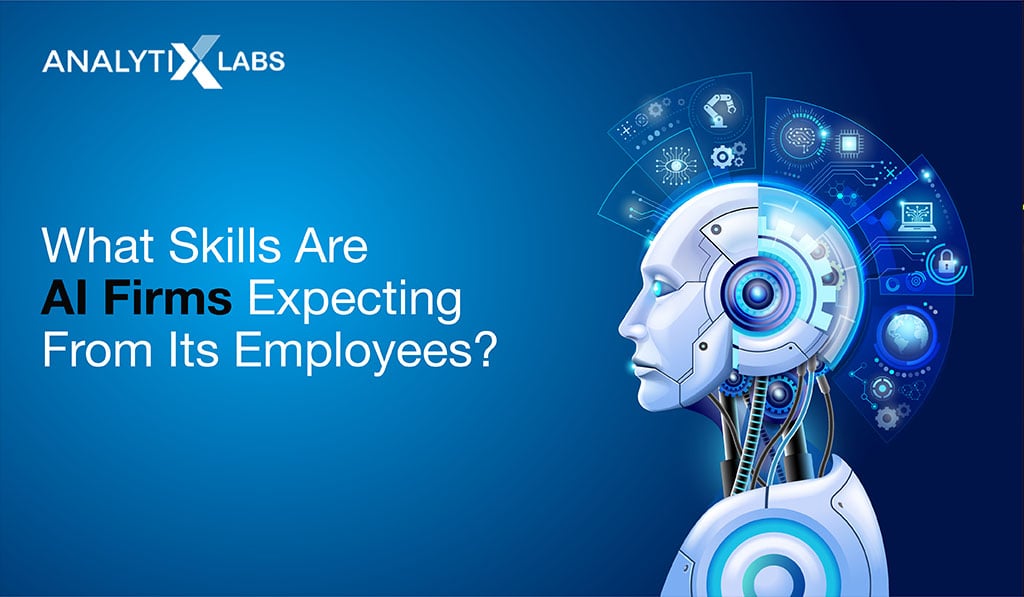
While AI is a vast field and requires an amalgamation of skills to master the field, these are at least five skills you need to have to construct extraordinary ML/AI solutions:
| Programming skills | The primary expertise needed to turn into an AI engineer is coding. To become knowledgeable in AI, it’s important to pick up programming languages like Python, R, Java, or C++ as they help develop and implement AI models. |
| Linear algebra, probability, and statistics | To comprehend the functioning of the various AI algorithms and their related concepts, for example, Hidden Markov models, Back Propagation, Gaussian combination models, and straight discriminant examination—you need to have a knowledge base in maths, likelihood, probabilities, calculus, algebra, etc. |
| Spark and big data technologies | Modern-day AI engineers work with vast volumes of information, which could be a continuous data stream weighing in terabytes or petabytes.
These professionals need to utilize big data tools such as Spark to process such information. Alongside Apache Spark, one can use other big data tools like Hadoop, Cassandra, MongoDB, etc. |
| Data understanding | Various AI models work with unstructured information, and one needs to know about data structures.
You must know the techniques to convert data formats such as audio, video, images, and text into a structured format such that the AI algorithm can be used to implement a model. The need to understand the data structures found in different libraries such as PyTorch, Theano, TensorFlow, and Caffe is also there. |
| Communication and problem-solving skills | AI engineers must communicate well to convey their ideas to co-workers or leadership. This is required because the projects are often complex, and it’s essential that everyone understands what’s going on and is on the same page.
Excellent critical thinking abilities are also required as the problems faced in real life are not straight out of books or tutorials. Also, one needs to accommodate the business side of knowledge during their model implementation. |
Top Industries Using AI
When talking about eligibility for AI courses, it is also important to know the sectors or industries you can explore.
There are multiple sectors where AI is being implemented rapidly. The most common are:
- Spam filters
- Voice-to-text features
- Smart digital assistants
- Defense
- Real-estate
- Cyber crimes
- Robotic process automation (RPA)
- eCommerce
- Banking and Finance
- Retail
- Telecom
- SaaS
- Automobiles
- Healthcare and more
Let’s explore a few of these.
1. Spam filters
Spam is a big problem with email providers and users, and AI-based algorithms can identify such spam messages and help the user use their inbox. Spam channels utilize modern algorithms to break down many emails with a long list of criteria to consider.
2. Smart digital assistants
Digital assistants can play out specific tasks for a person with the assistance of a specific client data source and access to GPS location. Digital assistants are acquiring greater prominence, with upgrades being designed consistently. Such personal digital assistants can help get data from the web, like weather information, stock prices, traffic conditions, news, etc.
Today, with quick headways in innovation, most digital assistants can even plan and schedule meetings, oversee messages, daily agendas, records, etc.
Digital assistants are acquiring ubiquity as time passes with the assistance of upgraded technologies. Individuals utilize these assistants to give them a smooth experience and fast outcomes. The most famous computerized partners that are being used by humans today include:
- Siri
- Google Now
- Cortana
- Blackberry Assistant
- Braina
- Teneo
- Speaktoit Assistant
- Hound
- Amazon Echo (Alexa)
- Automated responders and online customer support
3. Voice-to-text
Voice-to-text is a speech recognition program. Voice-to-text was initially evolved as an assistive innovation for the hearing impaired. Its applications were restricted because the voice-to-text program must be trained to perceive a particular individual’s speech before accomplishing satisfactory precision.
However, more recent versions can decipher the individual’s speech without training. This has opened up opportunities for new utilizations, including intelligent cell phone functions, for example, voice-to-text message conveyance and voice recognition.
4. Robotic Process Automation (RPA)
RPA is more developed than ever and has dramatically helped in business-process automation. The fact that the “robots” (AI models on a server) behave like humans in contributing and burning through data from different IT frameworks has made their adoption widespread.
Such ‘robots’ can take care of multiple tasks. A handful of these tasks include:
- Transferring information from email and call center frameworks into systems of record—for instance, refreshing client documents with address changes or service increments;
- Identifying anomalous credit card transactions and reaching into various frameworks to refresh records and handle client communications;
- Reducing losses by auto charge for services across billing frameworks
RPA is the most economical and straightforward way to execute AI technologies to speed up daily operations. These systems were initially minimally “smart” as these applications weren’t customized to learn and improve.
However, designers have gradually added more intelligence and learning ability to these systems. These systems are also especially appropriate for working across various back-end frameworks.
Robotic process automation would immediately put individuals jobless. Among the 71 RPA projects surveyed (47% of the aggregate), replacing representative workers was neither the essential goal nor a typical result.
As innovation improves, robotic automation projects will probably prompt some employment misfortunes, especially in the offshore business process outsourcing industry. However, by and large, other industries will come up to absorb the workforce.
Eligibility for artificial intelligence course: FAQs
Q1. Who can study Artificial Intelligence in India?
The AI qualification for candidates is to have selected a Science stream after 10th grade. It should have qualified their +2 with at least 50% marks and with Mathematics and Physics as the main subjects.
Candidates can then seek various Artificial Intelligence Courses in India after the twelfth, which are mainly available alongside or within computer science courses (Note- BTech or MTech in Artificial Intelligence are probably the most advanced courses in UG and PG and thus sometimes require a substantial score in JEE Main or GATE).
Students can also get into an online certificate or diploma-based artificial intelligence program. Generally, they are easier to enter and are short. Ed-Tech companies lead in providing such certificate programs and often provide good quality content.
Q2. Can I do an artificial intelligence course after the 12th?
There are different Artificial Intelligence courses available after successfully completing the twelfth. The AI qualification criteria can differ for different courses, but one can definitely pursue an artificial intelligence course after the 12th.
The table below will assist with picking up the type of artificial intelligence course after the 12th:
| Course Type | Duration |
| BTech./B.E. in Artificial Intelligence | 4 years |
| BTech in Computer Science (with AI specialization) | 4 years |
| MTech/ME/MSc in Artificial Intelligence | 2 years |
| Certificate in AI, Machine Learning, Deep Learning, Natural Language Processing | 6 months – 1-year |
| Diploma in AI and Machine Learning | 1 year |
| Post Graduate Diploma in AI and Machine Learning | 2 years |
| Ph.D. in Artificial Intelligence | 3 years |
Q3. Which artificial intelligence course after the 12th is best?
Till now, the field of data science and AI has been a favored subject for postgraduate individuals; however, the expanding need for data experts is making people begin in data science at an early stage.
Thus, learning an artificial intelligence course after the 12th is a good idea as there are a good number of things that can be learned at this stage. For this, one can go for either a proper bachelor’s degree or master’s degree or can go for various courses available online such as.
- Artificial Intelligence Engineering (AnalytixLabs)
- AI Programming with Python Nanodegree (Udacity)
- Artificial Intelligence A-Z: Learn How to Build an AI (Udemy)
- Columbia’s Artificial Intelligence MicroMasters Program (edX)
- Artificial Intelligence A-Z: Learn How to Build an AI (Udemy)
- Columbia’s Artificial Intelligence MicroMasters Program (edX)
- Introduction to Artificial Intelligence (edX)
- Google AI Education (Google)
- IIT Delhi (NPTEL platform) – Artificial Intelligence Online Course
- DeepLearning.AI – AI for Everyone (Coursera)
- IBM (through edX) – Professional Certificate in Applied AI
- Delft (through edX) – Professional Certificate in AI in Practice
Conclusion
AI is being rapidly adopted across numerous industries, and daily, the list of possible use cases is increasing. There is a massive requirement for AI professionals, and thus, this sector has a considerable possibility of mass employment with high-paying jobs. To enter this field successfully, one must start early and, based on eligibility, start learning Artificial Intelligence.

